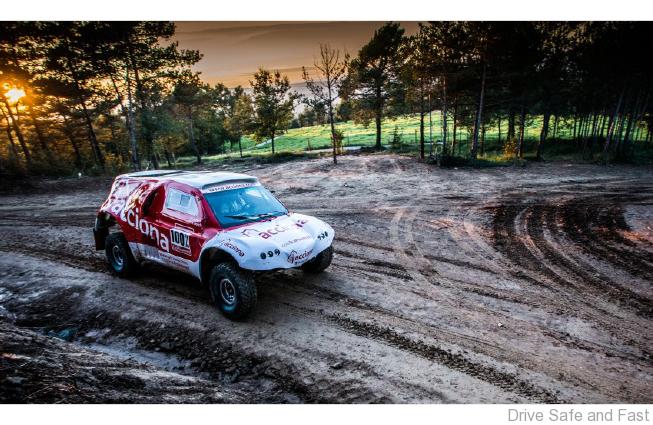ACCIONA is the first team to enter a fully electric car in the prestigious Dakar Rally. Starting 4th of January in Buenos Aires, pilots Albert Bosch and Agustín Payá will push the boundaries of their battery electric vehicle in order to complete a distance of over 9,000 kilometres.
Ambitions to complete the most challenging rally with an electric vehicle exists for years but the Spanish firm claims the honour of being first. They are not new to environment friendly journeys as the trilogy began in 2011 with its sled that reached the South Pole propelled only by a system of kites and continued its march forward in 2012 by participating in the Vendeé Globe, on board a sailboat that completed a solo, non-stop, round the world trip, without using a drop of fossil fuel.
It will be the first time in its 37-year history that Dakar registers a 100% electric car. Dakar is considered the toughest test in the world for man and machine and where the average consumption expenditure per participant is 2,250 litres of fuel. ACCIONA won’t need a single drop and will not emit CO2.
Developing the car has taken more than two years of R&D and has counted on the collaboration of a multidisciplinary team of over 20 people. The purpose was to reach an optimal balance between electric propulsion technology, powered entirely by batteries, and the unique characteristics of a racing car prepared for an extreme adventure such as the Dakar.
How will they do it? A synchronous electric engine equivalent to 300 hp and which weighs only 80 Kg compared to its internal combustion counterparts which weigh 280 Kg. A set of 4 removable Lithium Ion battery packs, capable of storing a total of 140kWH (similar to the contracted capacity of 32 homes) to adequately power the electric motor. Furthermore a system of solar panels, ensuring the supply of 100% renewable energy to power telemetry and security systems of the ACCIONA 100% EcoPowered.
Range in race mode has been targeted at 350 kilometres, which would be sufficient for most special stages. It is anticipated that ACCIONA is able to switch battery packs during the race (will be confirmed).
Specifications
| Class: | T1 – “NRJ-Alternative Energy Challenge” |
| Energy system: | range of 350km in race conditions |
| Battery recharging systems using the electricity network: | domestic charging port (220V), industrial connection (400V) and fast recharging system (50kW) |
| Total length: | 5.05m / total width: 2.18m/ Distance between axles: 3.16m |
| Height: | 1.90m (variable according to shock absorber compression) |
| Maximum weight: | 2,550kg (at maximum energy capacity) |
| Average weight: | 2,100kg (at 75% energy capacity) |
| Minimum weight: | 1,250kg (at 25% energy capacity) |
| Chassis: | Chrome-moly tubing |






